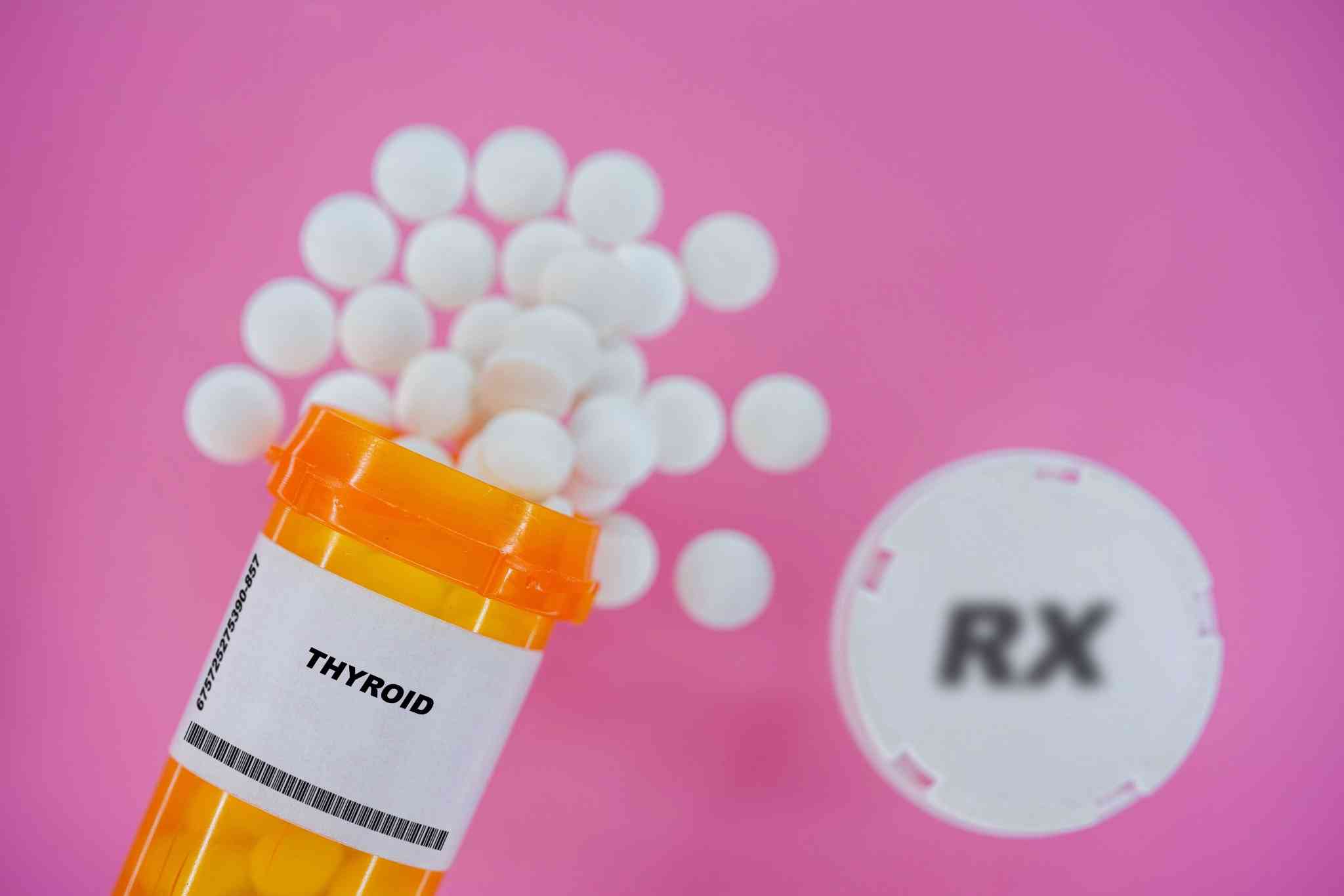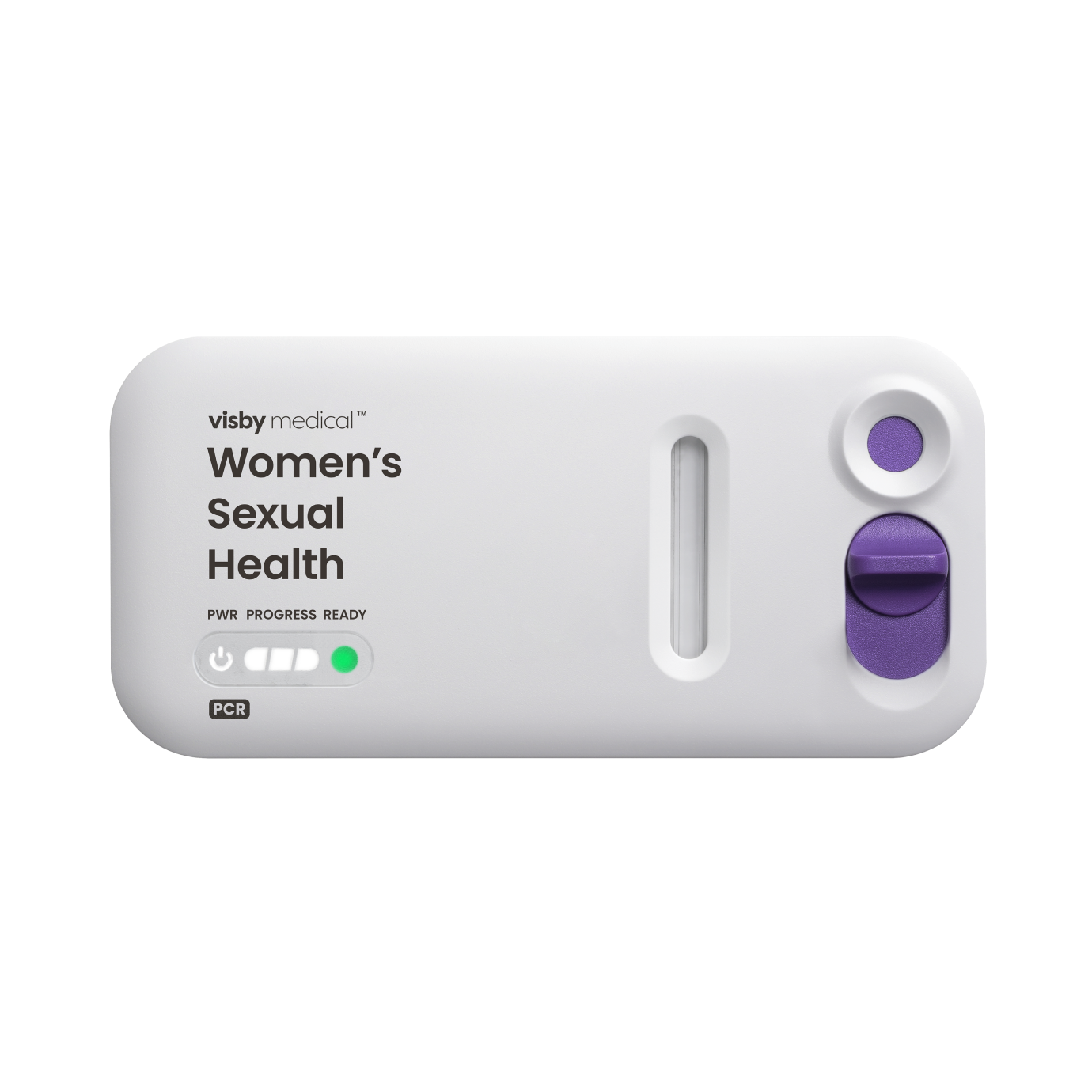Written by: Dr. Diana Rangaves, PharmD
Finding the right dosage of thyroid medication, like levothyroxine, isn't always straightforward. Hypothyroidism treatment aims to maintain a delicate balance, but factors like age, other medical conditions, and medication interactions can affect your dosage needs over time.1
Many people struggle with persistent symptoms like fatigue, weight gain, or sensitivity to cold without realizing their medication may require adjustment.2 Since under- or overtreatment can have serious health consequences, it's important to monitor your symptoms and work closely with your healthcare provider.
Here, we'll discuss common signs that your thyroid medication might not be optimal, how to assess your dosage, and when to seek medical advice.
How to Know If Your Thyroid Medication Is Too Low
Thyroid medication, like levothyroxine, works by replacing the hormones your thyroid isn't producing enough of.3 These hormones play a major role in regulating metabolism, energy levels, and body temperature. When your medication dosage is too low, your body doesn't get enough thyroid hormone, leading to persistent hypothyroid symptoms.
Common signs of an underactive thyroid include fatigue, unexplained weight gain, dry skin, depression, constipation, and increased sensitivity to cold.4 If you're still experiencing these symptoms despite taking your medication, your dose may not be sufficient.
Since thyroid hormone needs can change over time due to factors like age, lifestyle, and other medications, dosage adjustments are often necessary.1 Regular monitoring through blood tests and symptom tracking is essential to ensure you're on the right dose.
If you suspect your thyroid medication isn't working as it should, don't ignore the signs. Speak with your healthcare provider to determine if an adjustment is needed.
4 Key Signs Your Thyroid Medication Might Be Too Low
Finding the right thyroid medication dosage is important to managing hypothyroidism, but factors like weight, lifestyle, and other health conditions can affect your needs over time. If your dose is too low, you may experience persistent symptoms. Here are key signs thyroid medication is too low and what to do about it:
1. Your Weight Has Recently Changed
Thyroid hormones regulate metabolism, so when levels are off, your weight can fluctuate.5 If you've gained weight unexpectedly despite no major changes in your diet or activity level, it could be a sign that your medication dose is too low.
Why Weight Matters
Thyroid medication dosage is often calculated based on body weight, typically around 1.6-1.7 mcg per kg for most adults.6 Significant weight gain or loss can throw off this balance, meaning your dose may need adjustment.
What to Do
If you've noticed changes in your weight, let your healthcare provider know. They may recommend a blood test to check your thyroid levels and adjust your medication accordingly.
2. You Haven't Been Taking Your Medication Regularly
Levothyroxine is highly sensitive to timing, consistency, and interactions with other substances.7 If you're not taking it correctly, it may not be working as effectively as it should.
What to Do
To ensure you're getting the full benefits of your medication:7
- Take it at the same time each day on an empty stomach
- Wait at least 30-60 minutes before eating
- Set reminders to avoid missed doses
3. You Still Have Symptoms After 8 Weeks
Thyroid medication takes time to reach full effectiveness, usually around 6 to 8 weeks.8 If you're still feeling sluggish, gaining weight, or experiencing other hypothyroid symptoms after this period, your dose may not be sufficient.
What to Do
If symptoms persist beyond 8 weeks, ask your healthcare provider for a thyroid function test (TSH, T3, and T4 levels) to determine if your medication needs adjusting. Even if your test results are "normal," you might still need a small dosage tweak to feel your best.
4. Your Heart Rate Is Consistently Low
Thyroid hormones help regulate heart function.9 If your medication dose is too low, your resting heart rate may slow down abnormally.
Why Heart Rate Matters
A normal resting heart rate for most adults is between 60 and 100 beats per minute (BPM).10 A significantly lower rate (especially under 60 BPM, if you're not an athlete) could indicate an underactive thyroid. This can cause fatigue, dizziness, cold intolerance, or shortness of breath due to poor circulation.
What to Do
Check your heart rate using a smartwatch or manually by counting your pulse. If it's consistently low and you're also experiencing fatigue or dizziness, talk to your healthcare provider about testing your thyroid levels.
Can Thyroid Medication Be Too High?
While managing hypothyroidism often focuses on avoiding too low a dose, taking too much thyroid medication can also cause problems. An excessive dose can push your body into a hyperthyroid state, leading to symptoms of an overactive thyroid. Here are some signs your thyroid medication might be too high:11
- Insomnia
- Nervousness or anxiety
- Heart palpitations
- Increased appetite
- Unexplained weight loss
- Excessive sweating
If you notice these symptoms, don't ignore them. Overmedication can strain your heart and metabolism, leading to serious health risks.12 Contact your healthcare provider to check your thyroid levels and adjust your dosage if needed.
Hypothyroidism Management and Treatment: More Than Just Medication
While thyroid medication like levothyroxine is essential for managing hypothyroidism, lifestyle choices also play a key role in maintaining overall well-being. A holistic approach that includes proper diet, exercise, and stress management can help you feel your best. Here are some tips for better thyroid health:
- Eat a thyroid-friendly diet: Focus on nutrient-rich foods, including iodine (seafood, dairy), selenium (Brazil nuts, eggs), and zinc (meat, legumes).13 Avoid excessive soy and goitrogens (raw cruciferous vegetables) that may interfere with thyroid function.13
- Stay active: Regular exercise helps combat fatigue, improve metabolism, and prevent weight gain, a common issue with hypothyroidism.
- Manage stress: Chronic stress can disrupt thyroid function.14 Techniques like meditation, deep breathing, and adequate sleep can help regulate hormone levels.
- Stick to a routine: Take your medication consistently, at the same time each day, on an empty stomach.7
- Monitor symptoms: Keep track of energy levels, weight, and mood changes to detect any signs of dosage imbalance.
- Get regular check-ups: Routine blood tests ensure your thyroid levels remain stable and help your doctor adjust your treatment as needed.
Supportive Habits for Overall Thyroid and Hormonal Health
Supporting your thyroid health goes beyond medication. The right nutrients and dietary habits can help maintain hormone balance and improve overall well-being.
Iodine and Thyroid Health
Iodine is essential for thyroid hormone production. Without enough iodine, your thyroid can't function properly, leading to imbalances.15 Good dietary sources include:15
- Dairy (milk, yogurt, cheese)
- Seafood (fish, shrimp, seaweed)
- Eggs
- Iodized salt
Coffee and Anti-Inflammatory Diets
Coffee can interfere with levothyroxine absorption, so it's best to wait at least 30–60 minutes after taking your medication before drinking it.16 Also, an anti-inflammatory diet rich in whole foods, healthy fats, and antioxidants can support overall hormonal balance. Foods like fatty fish, leafy greens, and nuts can help reduce inflammation linked to thyroid disorders.17
So, ensure you monitor your iodine intake, avoid excessive coffee close to your medication time, and limit inflammatory foods like processed sugars and trans fats. Small changes can make a big difference in your thyroid health.
Thyroid Health Management Made Easier With Everlywell
Keeping track of your thyroid health is now more convenient with Everlywell's At-Home Thyroid Test. With just a simple finger prick, you can check key thyroid hormone levels, including TSH, T3, and T4, from the comfort of your home.
Your results are reviewed by a board-certified physician, giving you insights to discuss with your healthcare provider. So, don't leave your thyroid health to guesswork. Get clarity and take control with Everlywell's Thyroid Test today. Order yours here.
Conclusion: Finding the Right Dose and Managing Your Thyroid Health
Managing hypothyroidism is an ongoing process that requires the right medication dosage, regular symptom monitoring, and healthy lifestyle choices. Staying consistent with your medication, tracking changes in your body, and keeping open communication with your healthcare provider are key to maintaining optimal thyroid health.
If you're experiencing persistent symptoms or suspect your dosage might be off, don't wait. Evaluate your thyroid medication and consult a healthcare professional to ensure you're on the right track. Taking control of your thyroid health today can lead to a healthier, more balanced life.
References
- Duntas LH, Jonklaas J. Levothyroxine dose adjustment to optimize therapy throughout a patient's lifetime. Adv Ther.2019;36(Suppl 2):30-46. doi:10.1007/s12325-019-01078-2. Accessed February 25, 2025. https://www.ncbi.nlm.nih.gov/pmc/articles/PMC6822652/
- Symptoms. nhs.uk. Published November 18, 2021. Accessed February 25, 2025. https://www.nhs.uk/conditions/underactive-thyroid-hypothyroidism/symptoms/
- Treatment. nhs.uk. Published January 2, 2025. Accessed February 25, 2025. https://www.nhs.uk/conditions/underactive-thyroid-hypothyroidism/treatment/
- Symptoms. nhs.uk. Published November 18, 2021. Accessed February 25, 2025. https://www.nhs.uk/conditions/underactive-thyroid-hypothyroidism/symptoms/
- Thyroid and weight - the science. British Thyroid Foundation. Accessed February 25, 2025. https://www.btf-thyroid.org/thyroid-and-weight-the-science
- Ojomo KA, Schneider DF, Reiher AE, et al. Using body mass index to predict optimal thyroid dosing after thyroidectomy. J Am Coll Surg. 2013;216(3):454-460. doi:10.1016/j.jamcollsurg.2012.12.002. Accessed February 25, 2025. https://www.journalacs.org/article/S1072-7515(12)01452-9/fulltext
- How should I take thyroid hormone. UCLA Health. Accessed February 25, 2025. https://www.uclahealth.org/medical-services/endocrinology/patient-resources/patient-education/thyroid-patient-information/how-should-i-take-thyroid-hormone
- Jonklaas J. Optimal thyroid hormone replacement. Endocr Rev. 2022;43(2):366-404. doi:10.1210/endrev/bnab031. Accessed February 25, 2025. https://www.ncbi.nlm.nih.gov/pmc/articles/PMC8947232/
- Yamakawa H, Kato TS, Noh JY, et al. Thyroid hormone plays an important role in cardiac function: from bench to bedside. Front Physiol. 2021;12:606931. doi:10.3389/fphys.2021.606931. Accessed February 25, 2025. https://www.ncbi.nlm.nih.gov/pmc/articles/PMC7944747/
- Harvard Health. What is a normal heart rate? Harvard Health. Published June 13, 2023. Accessed February 25, 2025. https://www.health.harvard.edu/heart-health/what-is-a-normal-heart-rate
- Kumar KC K, Ghimire N, Limbu T, Khapung R. Levothyroxine overdose in a hypothyroid patient with adjustment disorder: a case report. Ann Med Surg (Lond). 2020;59:234-236. doi:10.1016/j.amsu.2020.09.045. Accessed February 25, 2025. https://www.ncbi.nlm.nih.gov/pmc/articles/PMC7544773/
- Website N. Levothyroxine. nhs.uk. Published October 28, 2024. Accessed February 25, 2025. https://www.nhs.uk/medicines/levothyroxine/
- Shulhai AM, Rotondo R, Petraroli M, et al. The role of nutrition on thyroid function. Nutrients. 2024;16(15):2496. doi:10.3390/nu16152496. Accessed February 25, 2025. https://www.mdpi.com/2072-6643/16/15/2496
- Restoration Healthcare. How stress impacts hormonal balance and your overall health. Functional Medicine Doctor Irvine. Published January 29, 2025. Accessed February 25, 2025. https://www.restorationhealthcare.com/how-stress-impacts-hormonal-balance-and-your-overall-health/
- Iodine and thyroid. British Thyroid Foundation.Accessed February 25, 2025. https://www.btf-thyroid.org/iodine-and-thyroid
- Benvenga S, Bartolone L, Pappalardo MA, et al. Altered intestinal absorption of L-thyroxine caused by coffee. Thyroid.2008;18(3):293-301. doi:10.1089/thy.2007.0222. Accessed February 25, 2025. https://pubmed.ncbi.nlm.nih.gov/18341376/
- Harvard Health. Foods that fight inflammation. Harvard Health. Published March 26, 2024. Accessed February 25, 2025. https://www.health.harvard.edu/staying-healthy/foods-that-fight-inflammation
Spotlight on
February is Cancer Prevention Month

86% of cancers aren't caught by recommended screenings. See what they're missing with a single blood draw.
Learn more
Explore Everlywell










